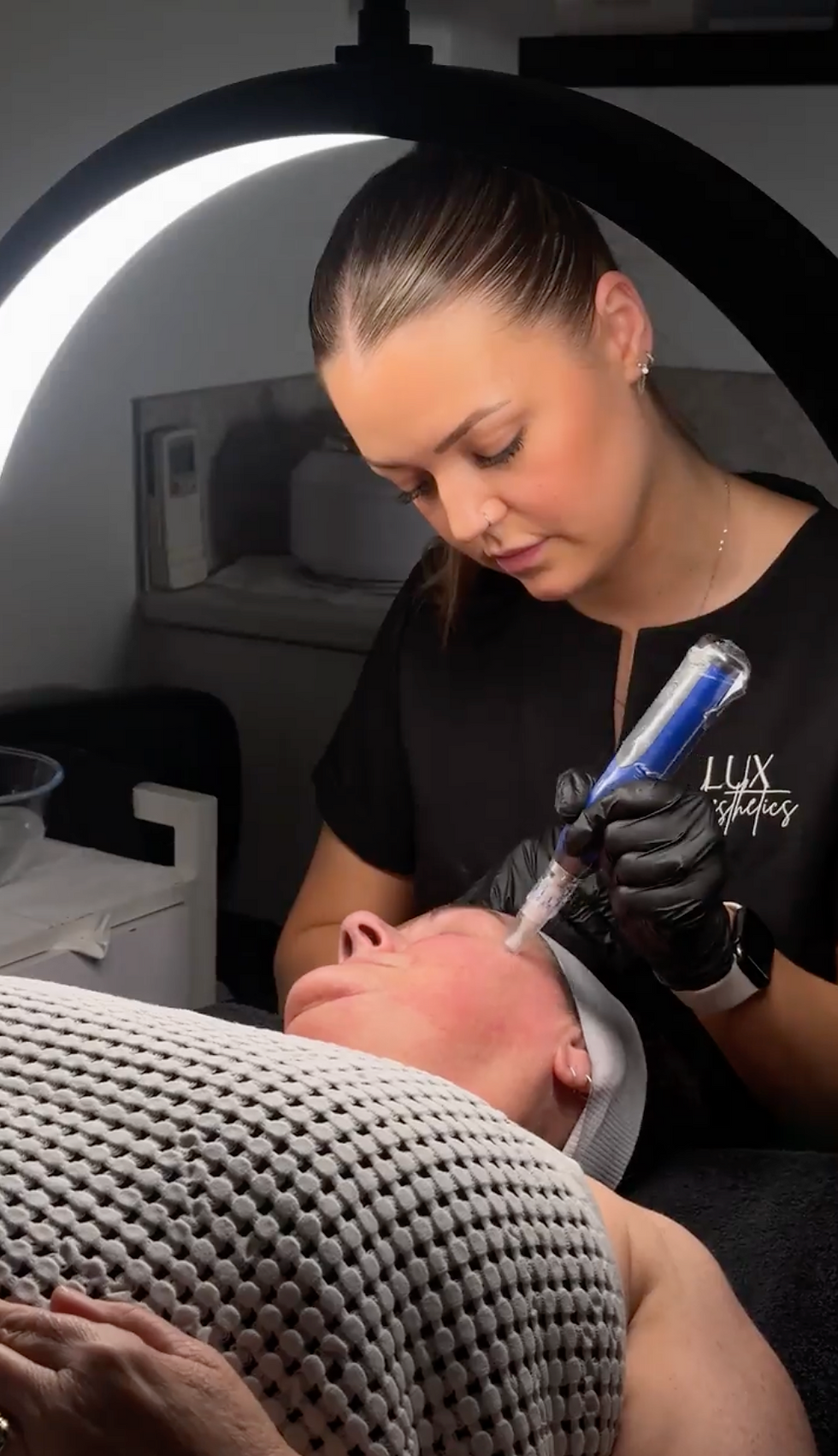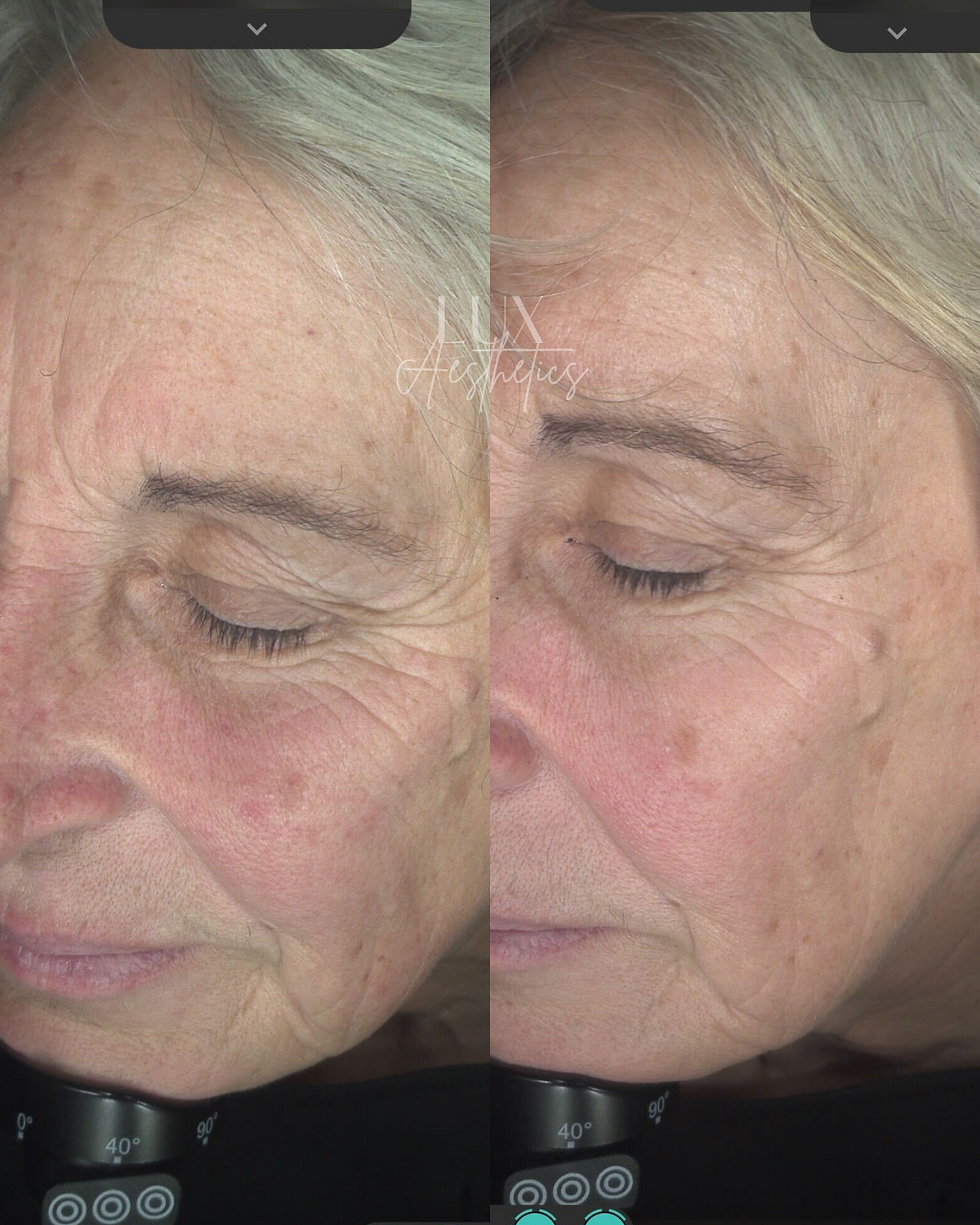What Happens During a Skin Needling Treatment
- Lux Aesthetics

- Aug 13, 2025
- 3 min read
Skin needling, also known as collagen induction therapy, is a professional treatment designed to improve skin texture, tone, and overall quality. It works by stimulating the skin’s natural healing response, encouraging the production of new collagen and elastin.
While many people notice improvements after just one session, the real, long-term results come from a gradual process.
Here’s why…

How Skin Needling Works
Skin needling uses a device with very fine, sterile needles to create controlled micro-channels in the skin. These micro-injuries are extremely small and precise, but they are enough to trigger the skin’s wound-healing process.
This process occurs in three stages:
Inflammatory Phase (Days 1–7)
The body responds to the micro-injuries by increasing blood flow to the area and releasing growth factors. This stage can bring some temporary redness, mild swelling, and a tight feeling, which generally subsides within a few days.
Proliferation Phase (Weeks 1–4)
New cells and collagen fibres begin to form. The skin starts to repair itself from the inside out, gradually improving texture and resilience. At this stage, changes are happening beneath the surface, so results may not be immediately visible.
Remodelling Phase (Weeks 4–12)
Collagen fibres reorganise and strengthen, improving firmness and elasticity. This is when the most noticeable changes in skin quality appear, although the process can continue for several months.

What to Expect During Your Treatment
Before your session begins, your skin will be cleansed and prepped. A topical numbing cream is often applied to ensure comfort. The treatment device is then passed over the skin in a methodical pattern to achieve even coverage.
You may feel light pressure or a prickling sensation, but most clients find the treatment very tolerable. Afterwards, your skin may appear pink or flushed, similar to a mild sunburn. This usually settles within 24–48 hours.
Your clinician will provide aftercare advice, which may include avoiding makeup for the first day, using gentle products, and applying high-quality sunscreen daily.
Why Changes Take Time
Although skin needling creates an immediate healing response, collagen production is a slow process. Collagen fibres take several weeks to form and strengthen, which is why visible results develop gradually.
For general skin rejuvenation, a series of three to four treatments spaced four to six weeks apart is typically recommended. For more targeted concerns such as acne scarring, deeper lines, or pigmentation, additional sessions may be needed.
By committing to a full course of treatments and supporting your skin with the right home care, you allow the collagen-building process to work to its full potential. This ensures your results are not only noticeable but also long-lasting.

Tips for Best Results
To support your results, it’s important to care for your skin between treatments. This includes using active skincare, protecting against UV exposure, and supporting collagen production from within.
Taking a high-quality collagen supplement during your treatment course can help improve both the quality and quantity of collagen produced. We love Collagen Support from Advanced Nutrition Programme for its clinically researched ingredients that work alongside your treatments to optimise results.

Skin needling is a safe, effective way to boost collagen and improve skin health when performed by a qualified professional. While it is not an instant fix, its gradual, natural results make it a valuable treatment for anyone looking to achieve smoother, firmer, and more even skin over time.
Book a consultation online or click here to discover our August Skin Needling promotion.






Comments